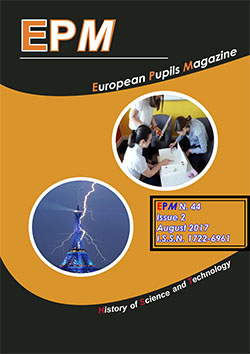Math Science Chemistry Economics Biology News Search
As all navigators of Internet know, in the World Wide Web news, documents, texts and articles of all types can be found and on whatever argument, but to trace the exact resource that is looked up, owing to masses of textual information, can often be equivalent to look for a needle in a haystack. The pages published on Internet are billions, and to catch up those of interest to us in specific way would be impossible without the help of a search engine.
These instruments have grown and are themselves more and more perfect of equal step with the development of the Net, and every navigator is accustomed to consult one or more search engines, those that, for his experience, he thinks more reliable. Using key-words that delimit the subject of the search and Boolean operator*, the research can be refined and we can obtain more and more accurate results:
-
AND: it combines two terms and restricts the search. The phrase “coffee AND chocolate” indicates that the pages must be tried all are those in which these words appear both;
-
OR: it separates two terms and enlarges the search. The phrase “coffee OR chocolate” indicates that the pages that contain one word, the other or both, must be tried all;
-
AND NOT: it excludes the pages containing the second word: “coffee AND NOT chocolate” excludes from the search the word “chocolate”.
Obviously, these terms could be represented by symbols that vary according to engines, also: we must read their instructions: i.e. if a phrase is to be find as it is written, we must use the quotations.
However, also using the same keywords, different search engines show different results because of their different technologies. Everyone, in fact, bases the search on its own algorithms **, which calculates the degree of authority and reliability of the sites, and then a list of those addresses that obtain the higher percentage is compiled; nearly always, therefore, we find it difficult to understand, among ten, hundred or many more addresses, which sites come up totally to our expectations.
In order to solve this problem, therefore, we must consult one powerful instrument - a meta search engine - that is able to organize the outputs of many other search engines at the same time and then it can offer a greater number of highly authoritative web pages relevant and useful to our search.
Among so many meta search engines available today in the web, we want to draw attention on two of them that are, in our opinion, truly useful and facilitating the search, discarding those superfluous or little readable documents in respect of the topics indicated by key-words.
The next two instruments use new technologies and different indices of search, but they are much more effective and, somehow, complementary.
www.vivisimo.com
The meta-search engine www.vivisimo.com, organises documents into groups or clusters that render the consultation of links easier when they are several. Vivisimo, in fact, just uses a heuristic algorithm ** in order to group textual documents. This algorithm is based on an ingenious idea: grouping documents showing a good, readable description in one well-defined cartel. Therefore, rather than form clusters and then figure out how to describe them, Vivisimo forms well-described clusters grouped in different associations.
No databases of web pages are stored in Vivisimo, but it organizes the search by other engines. Fully automated, it quickly finds meaningful groups that are concisely described and the specially-developed heuristic algorithm** achieves good results to find web pages, patent abstracts, scholarly publications, magazines, an so on.
The layout of the page showing the results of its search is more or less this: on the left column you find the names-indexes of the cartels with the number of found sites; in the middle column you find the description of every site opened by clicking on the directory.
See and try yourself to believe your eyes.
www.teoma.com
The second meta-engine, www.teoma.com, uses the same research style from many sites, but ordering the results in a different way.
Teoma offers three kinds of grouping:
- Results: list the very useful pages through the key-words only;
- Refine: suggestions to narrow the research for particular topics;
- Resources: web pages created by experts or other surfers, containing lists of links.
The layout of the results page is this: on the left you find the most useful found sites; on the top right the most useful addresses to refine the search, and below you can find the most useflul links for your purposes.
We can say that Internet is an instrument to research useful documents using many ways: it offers a lot of information always updated; it connects us to the world; it gives you the possibility to work staying at home or at school; it gives more recent news than the books or the magazines.
Remember what it is necessary to know:
- To find the right results you have to learn the tricks we wrote before;
- You have to know English well to use internet in the best way;
- Everyone can publish a web site, then, be sure in the evaluation when visiting each site;
- You can always find the best information in the traditional documents, like books and magazines.
Notes
* - it is a symbol of mathematical logic.
** - Algorithm comes from Arab al - Khuwārizmi and is a group of commands useful to one executor (a human or a machine) to operate to solve a specific kind of problem.


